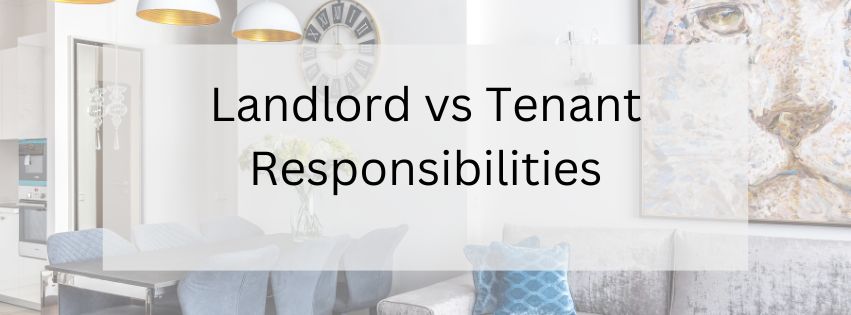Understanding Landlord vs Tenant Responsibilities
The relationship between a landlord and a tenant is crucial to the successful and harmonious management of rental properties, and clarifying the roles and responsibilities of each party is at the heart of this dynamic. It’s not just about upholding the terms of a lease; it’s about fostering a mutual understanding that promotes respect and satisfaction.
In the domain of property management, clear expectations can prevent misunderstandings, reduce conflict, and ultimately lead to the kind of cooperative arrangement that benefits everyone involved.
In this article, we’ll explore the distinct duties of landlords and tenants, offering insights that can enhance the rental living experience on both sides of the lease agreement.
CONTENTS OF THIS ARTICLE:
- Landlord Responsibilities
- Tenant Responsibilities
- Shared Responsibilities
- Do you need a property manager for your rental?
Landlord Responsibilities
When leasing residential or commercial space, owners are bound by certain obligations to the tenants. These duties are not just considerations but are documented by law and are integral for maintaining a safe and habitable living or working environment.
Property Maintenance
One of the fundamental responsibilities of a landlord is to maintain the property in good and clean condition. This includes ensuring all common areas are safe, clean, and in a reasonable state of repair.
Landlords are expected to address structural issues and maintain the habitability of the unit, which covers:
- The structural integrity of the building
- Providing and maintaining necessary services such as plumbing, lighting, and HVAC
- Pest control and prevention
- Common-area maintenance
- Handling of waste and garbage
- Adequate supply of hot and cold water
Repairs and Safety
Tenants should expect a landlord to promptly address any needed repairs. The timeline for fixing issues may vary depending on local laws and the severity of the problems, but common issues include:
- Heating and air conditioning
- Plumbing
- Electrical systems
- Appliances provided with the unit
- Safety hazards such as broken locks, exposed wiring, or mold
Landlords are also responsible for the safety of the property and are required to provide secure access and maintain fire safety protocols.
Legal Compliance
Landlords must comply with local and state laws concerning rental properties. This includes but is not limited to:
- Adhering to health and safety codes
- Ensuring proper insurance coverage
- Following fair housing laws and regulations
Understanding and maintaining legal compliance is essential for avoiding legal issues and for providing a secure and lawful living environment for tenants.
Tenant Responsibilities
To maintain a productive relationship with their landlord, tenants must fulfill their own set of responsibilities. These include financial obligations, as well as property care and compliance with the terms of the lease agreement.
Rent Payment
The most well-known tenant responsibility is the timely payment of rent. Rent should be paid in the manner, on the date, and for the amount specified in the lease. Consistent late payments can cause strain on the landlord-tenant relationship and may even lead to eviction.
It’s important for tenants to:
- Understand all fees and penalties associated with late or missed payments
- Communicate proactively with the landlord if there are financial concerns
- Utilize digital payment systems if available to simplify the process
Property Upkeep
Tenants are responsible for keeping their living space clean and sanitary. Regular maintenance and upkeep of the property help to maintain its condition and value and can include:
- Regular cleaning
- Reporting and repairing minor damages
- Notifying the landlord of any required maintenance or repairs
- Outdoor areas if these are for the tenant’s exclusive use, including yard, balcony, or patio
Reporting Damages
Tenants should be vigilant and report any damages to the rental space as soon as they occur. Delays in reporting can result in more extensive damage and could increase the liability of the tenant if it is found to be related to neglect.
Common damages to report include:
- Leaks or water damage
- Faulty appliances
- Damage to walls, floors, or other surfaces
By promptly reporting damages, tenants can help ensure that repairs are completed quickly and that the rental remains in good condition.
Shared Responsibilities
In addition to the specific obligations of each party, certain responsibilities should be shared in a landlord-tenant relationship. These include fostering open communication, respecting the property, and handling disagreements constructively.
Communication
Clear, respectful, and frequent communication can prevent misunderstandings and address issues as they arise. Landlords and tenants should have contact information for each other and both parties should:
- Notify the other party of extended absence
- Use appropriate channels for formal communication, including repair requests and lease amendments
- Respect each other’s privacy and give proper notice before entering the property
Respect for Property
Maintaining a property’s condition is a joint task. Landlords should expect tenants to:
- Adhere to the policies outlined in the lease
- Use the property in a careful and safe manner
- Keep the unit clean and damage-free
Landlords can also aid in this by providing appropriate waste management services and maintaining common areas.
Conflict Resolution
Disagreements are a natural part of any relationship, and the landlord-tenant relationship is no exception. When conflicts arise, both parties should:
- Seek to understand the other’s perspective
- Approach the situation with a solution-oriented mindset
- Refer to the lease and local laws to inform the discussion
- Utilize mediation or legal services if necessary
By addressing conflicts respectfully and effectively, landlords and tenants can strengthen their working relationship and prevent small issues from escalating.
In Conclusion,
Understanding the division of responsibilities between landlords and tenants is crucial for establishing a positive and harmonious rental relationship. By clearly outlining these duties, both parties can ensure that the terms of the lease are upheld, the property is well-maintained, and any issues are promptly and fairly addressed. This not only protects the investment of the landlord but also provides tenants with a safe, comfortable living environment.
Landlord-tenant responsibilities are not just about legalities; they are about mutual respect and the foundation of trust. Each party plays a critical role in ensuring that the terms are fulfilled in good faith. This commitment to cooperation benefits everyone and leads to a more satisfying rental experience..
Do you need a property manager for your rental?
At HomeWorks Property Management, our dedicated team efficiently handles all the daily tasks involved in managing your rental business. From conducting initial inspections to promoting your property, finding tenants, maintaining the property, collecting rent, managing accounts, providing exceptional customer service, and more – we’ve got you covered. Our property managers know local rental regulations, ensuring landlords are compliant. Additionally, we implement targeted marketing strategies and thorough tenant screening processes to help landlords find qualified tenants and rent out their properties within an average of 30 days. If you’re struggling to keep up with legal requirements or searching for innovative ways to boost your profits, feel free to contact us today!

